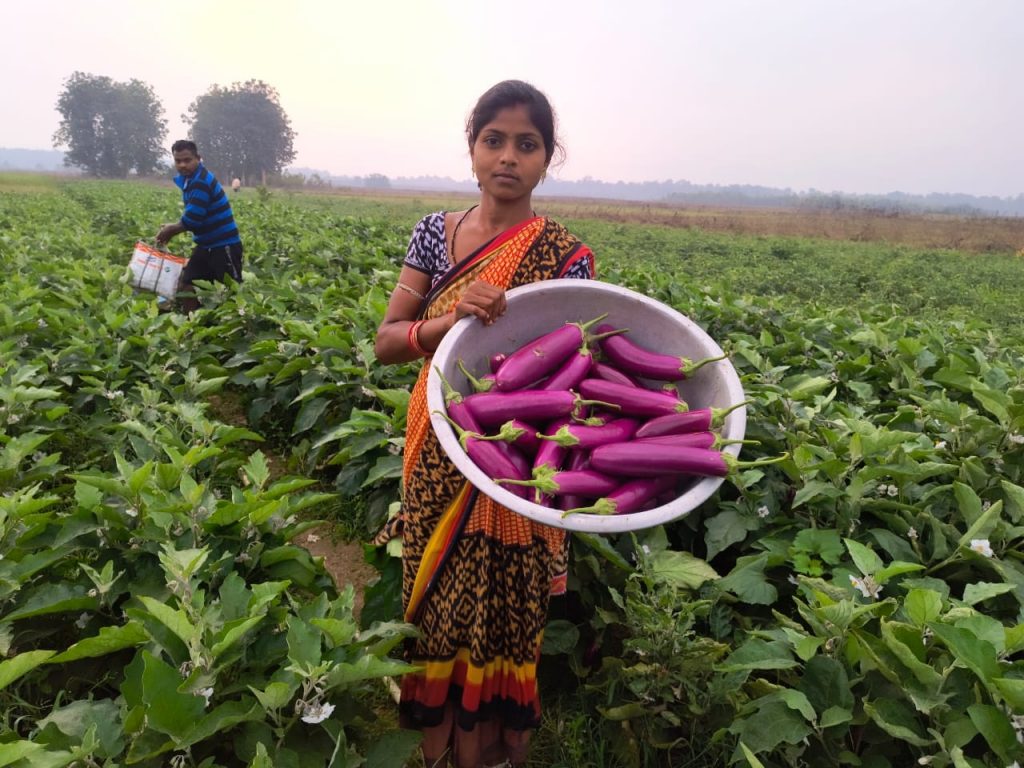Bhubaneswar: Mukhya Mantri Janajati Jeevika Mission (MMJJM) Programme, one of the state’s largest livelihood promotion initiatives for indigenous communities, is helping tribal households enhance their income by adopting innovative farming techniques. The programme is funded by the Odisha government and the state budget has earmarked Rs 500 crore for initiatives for three years starting 2023-24. “It will also leverage resources from other state and central government schemes through a proper convergence mechanism to access additional funding from other schemes, to amplify scale and impact,” one official said.
Operating in 13 districts and 119 tribal sub-plan (TSP) blocks, the programme encompasses 22 ITDA (integrated tribal development agency) areas for the initial phase of 2023-24 to 2025-26. “In the first phase, the programme aims to directly benefit 1.5 lakh tribal households. The programme, spearheaded by the ST, SC Development Minorities and Backward Classes Welfare Department, is implemented by ITDAs with support of a state-level PMU by non-governmental organisation PRADAN and 16 other partner NGOs as facilitators with the ITDAs,” said the official. The programme enables collectivisation of tribal farmers through institutions for economies of scale and sustainability, encouraging them to diversify to horticultural crops, livestock, and fisheries through cluster approaches. It also enables the creation of irrigation infrastructure for ensuring round-the-year crop production to enhance cropping intensity. ST, SC Development Minorities and Backward Classes Welfare commissioner-cum-secretary Roopa Roshan Sahoo said, “MMJJM has resulted in a significant increase of farm income for beneficiaries in its initial year.
In the subsequent years, as per the plan, intervened crop area under cultivation will be doubled and hundred per cent of the farm families will adopt a better package of practices due to project intervention.” The main activities of MMJJM include strengthening Janajati Jeevika Parishads (JJP) as the community-level grassroots institution and establishing the livelihood production clusters, entry point activities to build confidence of communities, development of farm clusters through critical input support and following regenerative agriculture and nonsynthetic approach of crop production and creation of suitable irrigation infrastructures to enhance crop intensity.
After 3 years, the scheme envisions fifty per cent increase in productivity of the crops taken under the cluster development programme and make sure that fifty per cent of cluster areas are under irrigation. “While it has helped in fifty per cent increase in area under cultivation in both winter and summer season including doubling of crop intensity, only forty per cent of wasteland/fallow lands/FRA lands of the clusters villages have been brought under active cultivation,” the official said.
One of the beneficiaries, Ujedi Pangi (32), wife of Hari Pangi of Upper Barabandha village under Kotia Gram Panchayat in Pottangi block has taken the lead in strawberry cultivation over three acres of land under the guidance of ITDA, Koraput under Mukhya Mantri Janajati Jeevika Mission, setting an example for others.
ARINDAM GANGULY, OP
